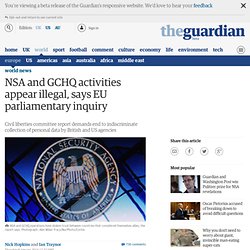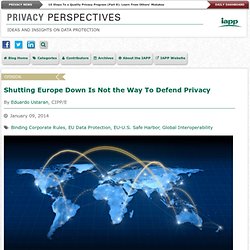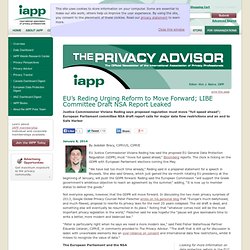

The Great SIM Heist: How Spies Stole the Keys to the Encryption Castle. AMERICAN AND BRITISH spies hacked into the internal computer network of the largest manufacturer of SIM cards in the world, stealing encryption keys used to protect the privacy of cellphone communications across the globe, according to top-secret documents provided to The Intercept by National Security Agency whistleblower Edward Snowden.

The hack was perpetrated by a joint unit consisting of operatives from the NSA and its British counterpart Government Communications Headquarters, or GCHQ. The breach, detailed in a secret 2010 GCHQ document, gave the surveillance agencies the potential to secretly monitor a large portion of the world’s cellular communications, including both voice and data. The company targeted by the intelligence agencies, Gemalto, is a multinational firm incorporated in the Netherlands that makes the chips used in mobile phones and next-generation credit cards. In all, Gemalto produces some 2 billion SIM cards a year. Its motto is “Security to be Free.” GCHQ slide. NSA and GCHQ activities appear illegal, says EU parliamentary inquiry. Mass surveillance programmes used by the US and Britain to spy on people in Europe have been condemned in the "strongest possible terms" by the first parliamentary inquiry into the disclosures, which has demanded an end to the vast, systematic and indiscriminate collection of personal data by intelligence agencies.

The inquiry by the European parliament's civil liberties committee says the activities of America's National Security Agency (NSA) and its British counterpart, GCHQ, appear to be illegal and that their operations have "profoundly shaken" the trust between countries that considered themselves allies. The 51-page draft report, obtained by the Guardian, was discussed by the committee on Thursday.
Claude Moraes, the rapporteur asked to assess the impact of revelations made by the whistleblower Edward Snowden, also condemns the "chilling" way journalists working on the stories have been intimidated by state authorities. Shutting Europe Down Is Not the Way To Defend Privacy. When I was at university, I remember a lecturer who used to say the first rule that any law degree student should follow was “to not panic.”

That is a rule that we should all apply when reading the draft report of the LIBE Committee of the European Parliament on the NSA surveillance programme. The prospect of a closed-down Europe that is advocated by the report is certainly daunting. Shutting down pretty much all transatlantic data flows in order to prevent unreasonable access to data by the U.S. intelligence services would not only be disproportionate, but it would be hugely damaging to the information society we all rely on.
LIBE's draft report follows a very thorough inquiry and assessment carried out by LIBE during the second half of 2013 and contains specific recommendations for wide-ranging measures to be adopted by the European Parliament. And: EU’s Reding Urging Reform to Move Forward; LIBE Committee Draft NSA Report Leaked. Justice Commissioner Viviane Reding says proposed regulation must move “full speed ahead”; European Parliament committee NSA draft report calls for major data flow restrictions and an end to Safe Harbor January 8, 2014 By Jedidiah Bracy, CIPP/US, CIPP/E EU Justice Commissioner Viviane Reding has said the proposed EU General Data Protection Regulation (GDPR) must “move full speed ahead,” Bloomberg reports.

The clock is ticking on the GDPR with European Parliament elections coming this May. “We have lost too much time already,” Reding said in a prepared statement for a speech in Brussels. Not everyone agrees, however, that the GDPR will move forward. “Peter is particularly right when he says we need a more modern law,” said Field Fisher Waterhouse Partner Eduardo Ustaran, CIPP/E, in comments provided to The Privacy Advisor. Looking for more information on data protection reform in the EU?